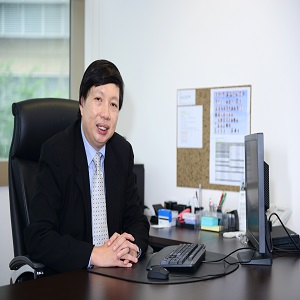
Dr Teoh Yee Leong, chief executive officer, Singapore Clinical Research Institute
Singapore: We are generally more familiar with the pharmaceutical led trials, where the pharmaceutical companies develop new drugs or medical devices in their laboratory and seek partnership with the hospitals, where their Investigators help recruit patients for the clinical trials. The protocols for these trials are developed by the pharmaceutical companies, with the aim of collecting the relevant scientific data for licensure of their drugs or medical devices for eventual commercialisation.
In Singapore, there has been an increased level of interest in Investigator-Initiated Trials (IITs). Unlike pharmaceutical led trials, the IITs are led by physicians who wish to design trials to answer some of their clinical questions. Some of these investigator led trials use a licensed drug for different therapeutic indications, while others may focus on comparing different treatment options of a disease and evaluate which treatment option is better or more cost-effective.
One of the prominent IITs in Singapore includes the study of low dose topical Atropine eye drops to reduce the progression of childhood myopia. Atropine itself is an old drug, commonly used in the field of ophthalmology to dilate the pupils prior to an eye examination. A few years ago, a landmark investigator led study showed that a diluted and low dose of Atropine eye drops could slow down the progression of childhood myopia in Singapore. This ground-breaking result has a significant impact on Singapore's population and benefitted many children with childhood myopia.
Some other interesting local IITs include the study of using Aspirin, which is a common and affordable drug for fever and pain relief, to treat colon cancer and the study of platelet transfusion in severe dengue patients.
While these examples of IITs focus on the use of currently available licensed drugs or treatment options, there are also other IITs which use new drugs or therapeutic options, similar to the pharmaceutical led trials. Smaller pharmaceutical or biotech companies may not have sufficient financial resources to run sponsored trials. Therefore, they rely on partnerships with the academic medical centres to lead these types of IITs. A recent example is the MUC-1 therapeutic cancer vaccine Phase 1 trial, which is sponsored by Singapore Clinical Research Institute (SCRI) and partnering with National Cancer Centre Singapore and Mircovax LLC, an US-based biotech company.
This trial demonstrated an excellent partnership between an Academic Research Organisation, a prestigious cancer centre and a biotech company in executing an Investigator-Initiated Trial for a new investigational drug.
For a potential investigator, to start an Investigator-Initiated Trial, more efforts is required in the preparation of the trial compared to running a pharmaceutical sponsored trial. He/she would need to design the protocol and calculate the necessary sample size for the trial. If there is no available research grant, he/she may need to submit a research grant proposal to the relevant funding organisation to apply for a research grant to support the conduct of a trial.
In this aspect, partnership with an Academic Research Organisation like Singapore Clinical Research Institute (SCRI) would be most beneficial for the potential investigator. Academic Research Organisation, together with its team of epidemiologists and biostatisticians, would work with the investigator to design the study protocol and help to apply for the research grant to run the trial.
When the grant is available, the partnership moves into the trial execution phase where the investigator and his study site will be responsible for trial recruitment. The Academic Research Organisation will be involved in supporting the trial operations, such as the project management, study monitoring, data management and analysis.
With the growth in IITs in Singapore and also in Asia, the role of Academic Research Organisations will continue to grow and strengthen their partnerships to deliver high quality clinical trials with the aim of improving patients' lives.
Successfully completed IITs have several common successful traits. These include a dedicated investigator, who devotes time and effort in the design and operations of the trials, an experienced Academic Research Organisation, which guides the investigator on the trial preparation and execution, funders, who recognise the value of the trial, and a strong team work with all the parties involved.
Training potential investigators for IITs is important to help them succeed. In Singapore, there are Clinician Scientists career path for physicians who wish to take up a career in research. Many of these Clinician Scientists may have received formal training in the area of clinical research though a relevant postgraduate degree, such as the Master of Clinical Investigations offered by Yong Loo Lin School of Medicine, National University of Singapore. The National Medical Research Council in Singapore also regularly awards the prestigious Clinician Scientist Award to qualified physicians to fund their career in clinical research.
Executing IITs overseas may present a different set of challenges compared to a single study site Investigator-Initiated Trial. In this model, the overseas study sites are generally required to be their own study sponsor. Generally, the Principal Investigator of an IIT may not be able to provide trial sponsorship for overseas sites, which is unlike a pharmaceutical led trial. The Academic Research Organisation, which is responsible for overall coordination of the trial logistics, would need to be familiar with the different regulatory and operational requirements in these countries. Many of these multi-site IITs are conducted in different countries through strong networks of investigators, which help to locate like-minded colleagues overseas to study the same clinical question.
Clinical trials are conducted with the aim of finding newer and better treatment solutions to current clinical problems. Not all clinical trials required new unlicensed therapeutic products, many clinical trials can be done in the area of using an existing product for a different therapeutic indication which may benefit patients. It is in this area that the IITs flourishes and we predict that this trend will continue to grow both in Singapore and Asia.




